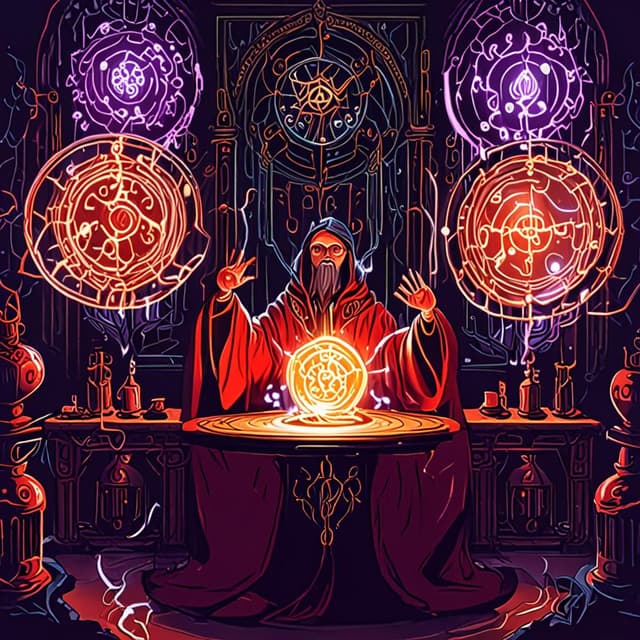
| Field of Study | Magical Physics and Chemistry |
| Ethical Debates | The Immense Power of Magic |
| Controllers of Magic | Governments • Corporations |
| Practical Applications | Powering Technology • Healing the Sick |
In this timeline, magic is recognized as a legitimate field of scientific study, with established principles, laws, and practical applications. Far from being the realm of superstition, the occult, and fantasy, magic is understood as a specialized branch of physics and chemistry that deals with the direct manipulation of the fundamental forces and properties of the physical world.
At the core of magical theory are the principles of quantum mechanics, which describe the bizarre behavior of matter and energy at the smallest scales. Mages, individuals with rare innate magical abilities, are able to intuitively sense and control these quantum-level phenomena through focused mental effort and training.
Some of the key "laws of magic" that have been systematically catalogued by researchers include:
By understanding and applying these principles, mages can manipulate forces like electromagnetic radiation, gravity, and even the strong nuclear force in ways that defy classical Newtonian physics. This allows them to perform feats such as levitation, transmutation of elements, and bending of light.
The practical applications of magic are widespread, and it has been a major driver of technological progress in this timeline. Key areas where magic is utilized include:
While these abilities may seem fantastical, they are the result of a rigorous scientific understanding of the quantum world that is unique to this timeline.
Given the immense power that magic wields, its practice is highly restricted and regulated by governments and corporations around the world. Only those who undergo extensive training and licensing are permitted to use magical abilities openly. There are also strict rules and protocols around the types of magic that can be employed, especially for military or industrial applications.
This control of magic has led to complex ethical debates. Critics argue that restricting access to such a transformative technology is undemocratic and perpetuates existing power structures. Proponents counter that unrestrained use of magic could be devastating, both to individuals and to society as a whole. Issues of privacy, security, and the rights of mages themselves are also hotly contested.
Nonetheless, the impact of magic on this world's history, culture, and daily life is undeniable. From the skyscrapers powered by magical energy to the weaponized weather phenomena deployed in warfare, the presence of this unique scientific discipline is woven into nearly every aspect of civilization. The future of humanity may very well depend on how we continue to understand, utilize, and govern the awesome powers of magic.